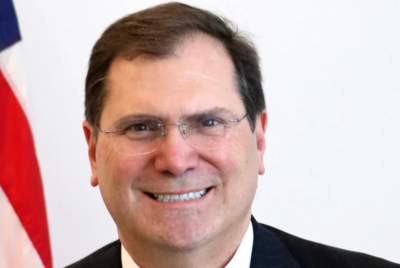Is a coup d'etat likely to happen in Nigeria while President Buhari is in the UK?
Fears of non-democratic change of power emerge as Buhari is on medical leave for second time this year.
Fears of a possible coup d'etat in Nigeria have emerged as President Muhammadu Buhari is in the UK, for the second time since the beginning of 2017, for medical check-ups.
The 74-year-old head of state spent nearly two months on medical leave in London earlier this year. He left again on 7 May, handing over powers to Vice President Yemi Osinbajo.
Buhari's medical trips, and mystery surrounding his medical conditions, are sparking speculations on his health and the future of one of Africa's largest economies.
Analysts have previously warned Buhari's prolonged abscence could spark a power struggle ahead of 2019 presidential elections, should the leader become incapacitated.
Matthew T Page, analyst and former US intelligence expert on Nigeria, told IBTimes UK earlier in May that ruling party elites were "already quietly positioning themselves to be named vice president if Osinbajo becomes acting president."
The Chief of Army Staff, Tukur Buratai, has now warned army officials against becoming involved in the country's politics. He made the remarks on 16 May after the Nigerian army received information that "some individuals have been approaching some officers and soldiers for undisclosed political reasons," according to Nigerian site Premium Times.
Some Nigerians have drawn similarities between Buhari's medical leave and that of deceased former president Umaru Yar'Adua, who was admitted to a hospital in Saudi Arabia in 2009.
The country experienced a power vacuum filled only when the senate approved a Doctrine of Necessity to allow the then vice-president Goodluck Jonathan to be sworn in as president. Yar'Adua returned to Nigeria in February 2010 and died at the presidential villa in Abuja in May that year.
"[A coup] is not likely to happen given the precedent. There was similar pressure in 2010 with Yar'Adua terminally ill, but the soldiers stayed in their barracks," Adedayo Ademuwagun, Lagos-based analyst at Songhai Advisory, told IBTimes UK.
Osinbajo has won praise for the leadership skills demonstrated during Buhari's abscence.
However, the army's statement has highlighted ongoing tensions in the country. Buratai's statement prompted the UK embassy in Nigeria to issue a warning against "non-democratic" change of government in the country.
"There are elections. If you're not happy with your leaders then you should change your leadership through the democratic process and through elections," the UK High Commissioner to Nigeria, Paul Arkwright, said on 17 May.
Although analysts seem to believe a coup is possible but unlikely, there are fears politicians loyal to Buhari, a Muslim from the north, could obstruct Osinbajo, a Christian from the south.
"Northern leaders will try to get a concrete deal that will, at best, see Osinbajo step down for a northern candidate to run in the 2019 poll," Ademuwagun said. "If that agreement cannot be reached, some figures may resort to extreme measures to get their way, and so a coup isn't ruled out considering the top military establishments are in the north and northern soldiers dominate the army."
UK-based security analyst and counter-terrorism expert David Otto believes a coup could succeed only if Northeners were behind it, given the perception that top positions within the army are covered by people from northern Nigeria.
"If a coup were to occur in Nigeria, with the composition of the military, it will not be successful if a Southerner was behind it," he told IBTimes UK.
"There could be genuine fear from the so called 'Northern Cabal'[elite from northern Nigeria] that what happened with the previous leader Yar'Adua could happen to President Buhari: Leaving Osibanjo, a Southern Christian, to take charge and maybe run in 2019.
"The fact that Buhari is out of the country indefinitely is not good for Nigeria stability. President Buhari must either return to Nigeria , disclose what's wrong with him or put the interests of the country [first] and resign as a result of his unfortunate ill health," Otto concluded.
© Copyright IBTimes 2025. All rights reserved.






















